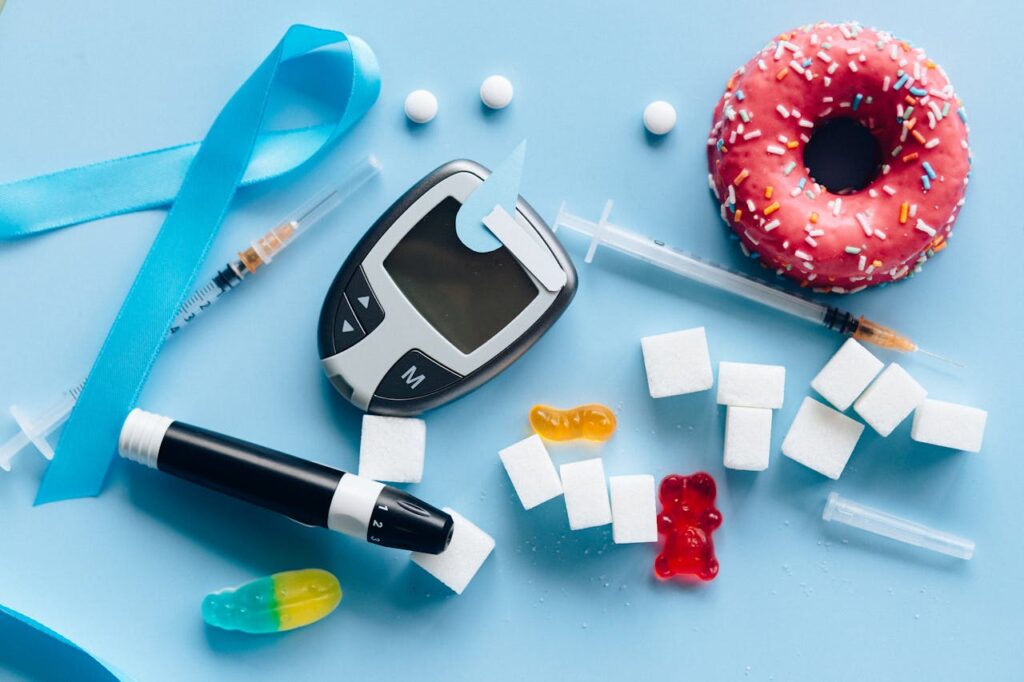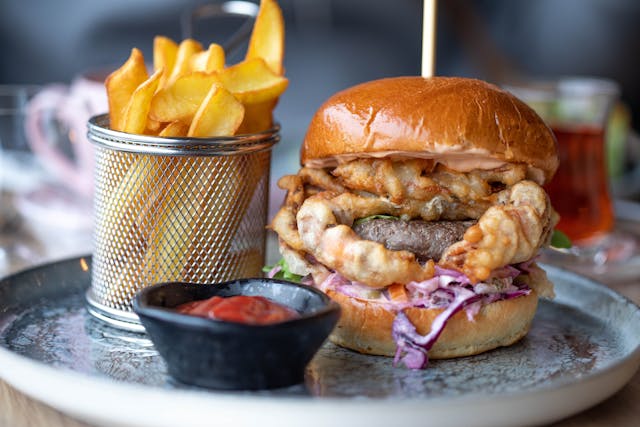10 Habits That Could Be Spiking Up Your Blood Sugar
You might say: “But I do not have diabetes; why should I care about my blood sugar?”.
However, the reality is that blood sugar control is no longer an exclusive concern for individuals with diabetes. Increasing evidence indicates that managing blood sugar should be a health target for everyone, given its impact on metabolism, long-term health, diabetes prevention, energy level and mood.
Let’s start with understanding what a blood sugar spike is. After eating, sugar (glucose) levels in your blood go up, insulin is released in response and the insulin helps to take the glucose from the bloodstream across into the cells where it is needed.
When your body is working optimally, blood glucose levels are tightly controlled, and you don’t see large variations or spikes. If there is something wrong in your body, this blood sugar spike is not cleared as quickly and your blood glucose levels remain high (hyperglycaemia) or take longer to return to normal.
Why worry about a sugar spike in a non-diabetic?

While individuals without diabetes may not experience chronic high blood sugar, occasional spikes can still have negative effects. Here are some reasons why monitoring and managing blood sugar levels in non-diabetics is important:
- Metabolic Health:Consistently elevated blood sugar levels, even in non-diabetics, can contribute to issues related to metabolic health. Over time, this may lead to insulin resistance and an increased risk of developing type 2 diabetes.
- Long-Term Health:Research suggests a link between elevated blood sugar levels and various health conditions, including cardiovascular diseases. Monitoring and managing blood sugar can contribute to long-term health and disease prevention.
- Energy Levels:Fluctuations in blood sugar can affect energy levels. Spikes followed by crashes may lead to feelings of fatigue and decreased overall energy, impacting daily activities and productivity.
What are the top 10 causes of increased blood sugar in non-diabetics?
1. Eating A Diet High in Processed Carbs

The most obvious cause of blood sugar fluctuations is what you eat. Highly processed carbohydrates such as sugar-sweetened beverages and sweets, pastries, and other high-fat, high-sugar products are rapidly broken down into glucose and absorbed leading to high blood sugar levels. When you eat these foods regularly, your blood glucose levels will spike more often than they should.
2. Gaining Weight Around The Belly

Excess fat in the body, particularly when carried around your middle, triggers a complex interaction of hormones and inflammation leading to the development of insulin resistance. If you have insulin resistance, your body produces insulin but the insulin cannot carry the glucose from the bloodstream into the cells where it is needed resulting in high blood glucose levels and high insulin levels which subsequently, increase inflammation and make your insulin resistance worse. As your insulin resistance worsens, it becomes harder and harder to lose weight.
Adipiscing elit, sed do eiusmod tempor incididunt ut labore et dolore magna aliqua. Ut enim ad minim veniam, quis nostrud exercitation ullamco laboris nisi ut aliquip ex ea commodo consequat. Duis aute irure dolor in reprehenderit in voluptate velit esse cillum dolore eu fugiat nulla pariatur. Excepteur sint occaecat cupidatat non proident, sunt in culpa qui officia deserunt mollit anim id est laborum.
3. Sitting Down

Exercise helps to improve insulin resistance by helping the body to use the glucose in your muscles where it is needed for energy and is well-known to prevent the development of type 2 diabetes. On the other hand, lack of exercise is associated with decreased insulin sensitivity and higher glucose levels.
4. Not Getting Enough Sleep

Among other negative impacts that lack of sleep has on the body, not getting enough sleep can cause blood sugar spikes. In the morning following a bad night’s sleep or even a later than normal bedtime, post-breakfast blood glucose levels will be higher.
5. Skipping Breakfast

Skipping breakfast has shown to increase postprandial hyperglycaemia, which means the glucose level after a meal. This habit has been associated with impaired insulin response, after lunch, even in healthy young individuals. That is why intermittent fasting shouldn’t be equivalent to skipping breakfast. Most of the fasting time should happen during the evening and nighttime.
6. Eating Naked Carbs

Eating naked carbs, or consuming refined carbohydrates without accompanying proteins or fibres, leads to rapid spikes in blood sugar levels due to quick digestion and absorption. This can contribute to fluctuations in blood sugar and, over time, may lead to insulin resistance. Opting for whole foods with complex carbohydrates and coupling them with a source of proteins and fibres supports better blood sugar control and overall health.
7. Eating When Stressed

Eating when stressed can lead to elevated blood sugar spikes in healthy individuals due to the release of stress hormones, such as cortisol. Stress-induced cortisol release prompts the liver to release glucose into the bloodstream, contributing to higher blood sugar levels. This physiological response, combined with potential emotional eating of sugary or high-carbohydrate foods, can disrupt glucose regulation and contribute to temporary spikes in blood sugar.
8. Eating The Meal in the Wrong Order

The order in which foods are consumed can influence glucose spikes in healthy individuals. Starting a meal with carbohydrates can result in a quicker rise in blood sugar, while including proteins and fats may slow down digestion, promoting more stable blood sugar levels. Strategic meal ordering prioritizes fibres, then proteins and fats and carbohydrates and sugar are consumed last. This order can contribute to better glucose control and overall metabolic health.
9. Not Drinking Enough H2O

Dehydration can contribute to glucose spikes in healthy individuals as it leads to a higher concentration of blood sugar. When the body is dehydrated, the blood becomes more concentrated, causing an apparent increase in blood sugar levels. Maintaining adequate hydration is crucial for optimal glucose regulation and overall metabolic health in healthy individuals.
10. Eating Sugary Food First Thing in The Morning

Consuming sugary foods first thing in the morning can lead to glucose spikes in healthy individuals. The rapid absorption of refined sugars from these foods causes a quick surge in blood glucose levels, potentially resulting in an increased release of insulin.
For both individuals with and without diabetes, maintaining an optimal blood sugar level is crucial for overall health. Let’s put our best foot forward and put the famous quote: “An ounce of prevention is worth a pound of cure” to action. Do something today that your future self will thank you for.
Tag Post :
Share This :
- Join the 10,000+ persons that choose healthy food
Our Contact
- 103, Al Nuaija Street, Al Hilal Area, Doha, Qatar
- info@dietdelights.com.qa
- +974 4419 6441
Timing
- Saturday to Wednesday - 9am to 7pm
- Thursday 8am to 5.30pm
- Friday Closed
Quick Links
Social Media
Diet Delight
Copyright © 2024 All rights reserved.


